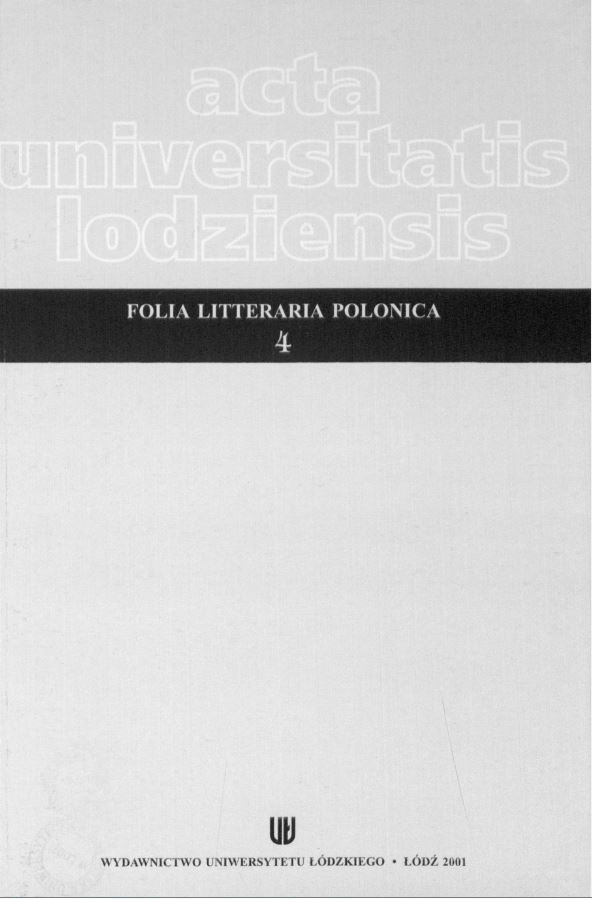Man's place in the world history (according to genesic philosophy of Juliusz Słowacki)
DOI:
https://doi.org/10.18778/1505-9057.04.05Abstract
The genesic philosophy of Juliusz Słowacki, sometimes called his mysticism, is structured and constituted around four basic historiographic concepts as regards mankind. They are: the idea of spiritual progressive development, the concept of spiritual leadership, influence of the world of spirits on human doings, and the aggregation (that is collective) form of the spirit. Progress is the fundamental element of the genesic work of spirits who have been appointed by God to do it. Those form-creating efforts are the nature and the task of the spirits of the “World” .
The principle of progress is sacrifice. It means that a spirit has to sacrifice something of its present form in order to receive a more perfect one from God. And thus, on the border of organic forms, a spirit sacrificed its immortality, it sacrificed itself to death. In the genesic system, death is only a break dividing two lives; just like a dream is a break between work of the two days. The spirit that first rose the highest is benefactor to all creation because it shows the way up to everything else. Such a spirit, progressing ahead of others, is the natural guide of the creation, King Spirit.
The most fundamental statement of Stowacki’s genesic philosophy is “Everything has been created for the spirit and by the spirit, and there is nothing to exist for the material purpose”. This seems to be most beautifully expressed tribute to the spiritual element of the human nature.
Downloads
Downloads
Published
How to Cite
Issue
Section
License

This work is licensed under a Creative Commons Attribution-NonCommercial-NoDerivatives 4.0 International License.











